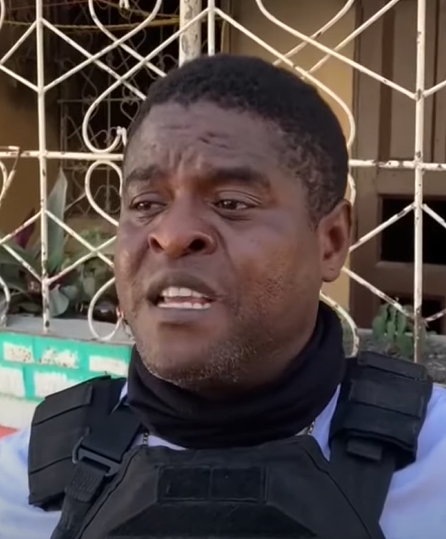Member-only story
The Barbecue Bandit: Haiti’s Descent into Gang-Ruled Chaos

In the smoldering ruins of Haiti’s tattered democracy, a sinister figure has risen from the ashes, casting a long shadow over the nation’s hopes for peace and stability. Jimmy Chérizier, a former police officer-turned-gang lord, has masterfully orchestrated a reign of terror that has brought the once-proud island nation to its knees.
Bearing the ominous moniker “Barbecue” — a chilling reference to his alleged penchant for incinerating enemies — Chérizier has united several gangs into a formidable alliance known as the “G9.” With an iron grip on 80% of the capital, Port-au-Prince, this raffish gang boss has effectively usurped the government’s authority, rendering the prime minister, Ariel Henry, a powerless spectator in his own country.
Chérizier’s ascent to power is a damning indictment of Haiti’s failed state, a testament to the depths of corruption and lawlessness that have plagued the nation for decades. With a rap sheet that includes accusations of murder, rape, and arson, this self-proclaimed “Caribbean Robin Hood” has skillfully exploited the nation’s poverty and desperation, positioning himself as a champion of the downtrodden masses.
Yet, beneath the veneer of his populist rhetoric lies a calculated and ruthless strategist. Chérizier’s orchestration of chaos and violence is a cleverly crafted survival strategy, aimed at deterring a proposed UN peacekeeping mission that would inevitably undermine his gang’s stranglehold on power. His actions are a defiant rebuke to foreign intervention, tapping into a deep-seated national pride that harkens back to Haiti’s historic slave revolt against the French.
With murals likening him to the revolutionary icon Che Guevara adorning the slums he rules, Chérizier’s influence and popularity cannot be understated. His articulate interviews with foreign reporters betray a keen political acumen and a burning ambition that extends far beyond the confines of his gang’s turf wars.
As Haiti teeters on the brink of complete societal collapse, the specter of Chérizier looms large. His meteoric rise to power is a chilling testament to the fragility of democracy and the ease with which chaos can consume a nation. Whether he aspires to be a kingpin or a kingmaker, one thing is clear: the Barbecue Bandit’s reign has plunged Haiti into a vortex of gang-ruled chaos, a descent from which there may be no return.
In this bleak landscape, the international community finds itself at a crossroads. Inaction risks condemning Haiti to a fate of perpetual lawlessness, while intervention could ignite a firestorm of resistance from a nation that has long defied foreign meddling. As the ashes of democracy smolder, the world watches with bated breath, wondering whether Haiti’s darkest hour has yet to pass or if a glimmer of hope still flickers in the distance.






